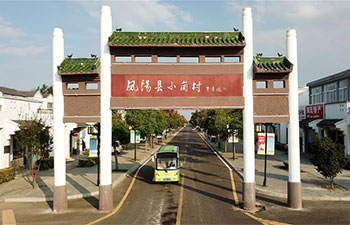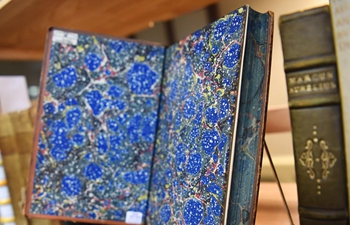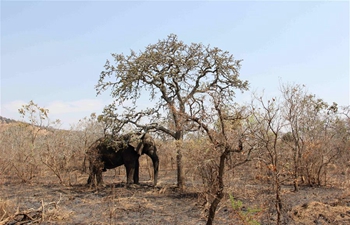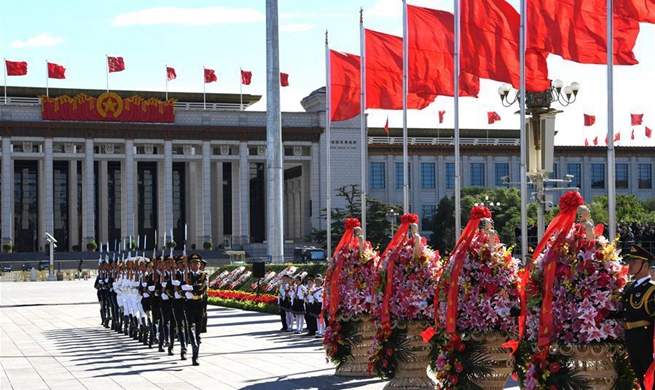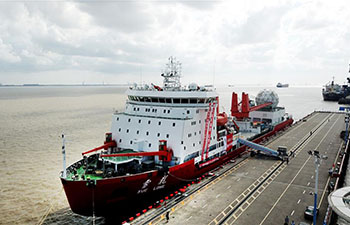by Maria Spiliopoulou
ATHENS, Sept. 30 (Xinhua) -- Greece finally walked out of the harsh eight-year bailout this summer, but challenges remain, such as the talent brain drain, including doctors, according to George Patoulis, president of the Athens Medical Association.
In a recent interview with Xinhua, Patoulis said that the investment in medical, health tourism could significantly contribute to the backflow of doctors who left the country during the past years.
Citing some alarming figures, Patoulis called for immediate steps to reverse the exodus.
More than 18,000 doctors, newly qualified graduates as well as experienced specialists, were among those who emigrated during the crisis, he said. The overwhelming majority (12,629) were members of the Athens Medical Association which now has a total of 24,815 members. This year so far 281 doctors, mainly experienced specialists, have left Greece seeking better wages and work stability abroad.
What they are leaving behind is gaps in the health service. Vacancies of the positions needed in state hospitals nationwide reach up to 20 percent in some cases, according to the Union of Doctors in Athens and Piraeus hospitals.
Doctors' exodus is only the tip of the iceberg in terms of the overall brain drain in Greece.
According to figures from the central Bank of Greece, about 430,000 Greeks left the country in the past decade, with half of them highly educated and qualified youth. They left the country to seek job opportunities abroad at a time when unemployment rates reached almost 30 percent, and even 60 percent among those aged under 25.
Although the unemployment rates have lately improved as Greece is on the recovery path, the association president believes it is not enough to put an end to the brain drain.
"We have exited from the memorandum, but we haven't seen anything changing so far. Greeks continue to leave the country," Patoulis told Xinhua.
Brain drain has weighed heavily on Greek economy, especially when back-on-track Greece needs more talent to help the country return to growth.
Since 2008, these educated and skilled Greek emigrants have contributed more than 50 billion euros (58 billion U.S. dollars) to the countries where they now live and work, according to estimates of then non-profit organization Endeavor Greece.
In order to convince medics to return to Greece, the Athens Medical Association suggests focus on the growing global market of medical and health, wellness and spa tourism, which, according to estimates, generates 40 billion and 100 billion U.S. dollars per year respectively, Patoulis noted.
Currently, Greece, as a newcomer in this market, attracts only 3 percent of the some 14 million health tourists estimated worldwide per year, but has plenty comparative advantages and potential, experts said during a forum hosted here a few months ago.
"We indeed have a very low percentage, although prospects are very good, because we have the infrastructure and highly specialized, great scientists in particular in some branches of medical practice," Patoulis said.
Greece has good infrastructure as a popular tourism destination for decades and is the birthplace of Hippocrates, the ancient Greek physician who is referred as the Father of Medicine.
"An investment on the future of our country is based on Hippocratic medicine -- let's not forget that Western medicine started from here -- to send this message to the world so that doctors will no longer leave abroad, but patients will be coming to find cure here," Patoulis added.
According to evaluations of the World Health Organization, the country has high quality of health services, highly skilled personnel and modern technological equipment in particular in the private sector.
In addition, the prices for care are competitive compared to the cost in other Western countries, and Greece also provides a natural environment which calms body and soul with good climate and therapeutic mineral springs, as well as rich culture.
"We believe that one can invest in medical tourism and health tourism. If they combine this investment also by offering education and opportunities for specialties in cooperation with private universities -- doctors from across the world seek this and want this -- I would say that a major unit could be launched on Kos, Hippocrates' island," said Patoulis. (1 euro= 1.16 U.S. dollars)

